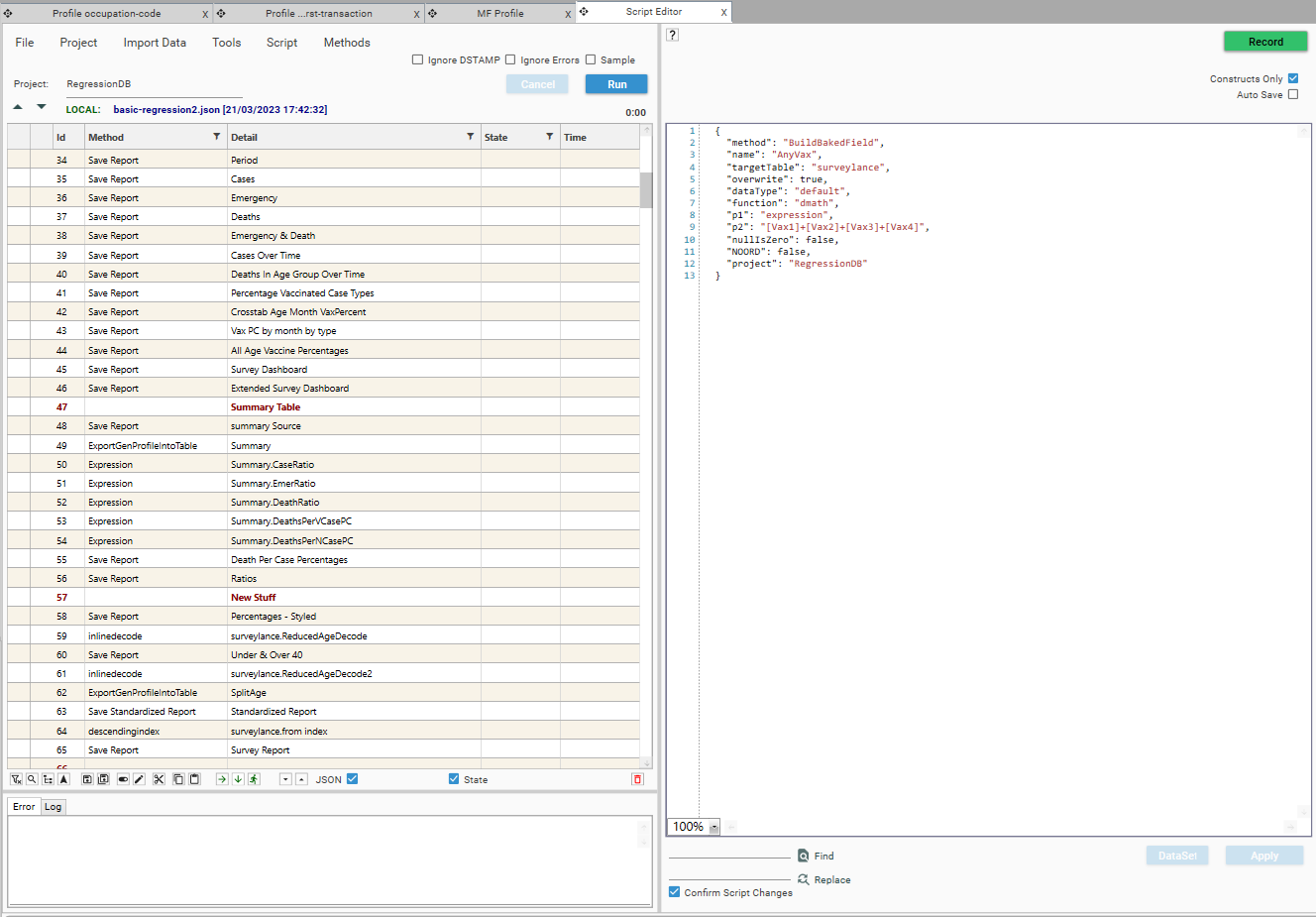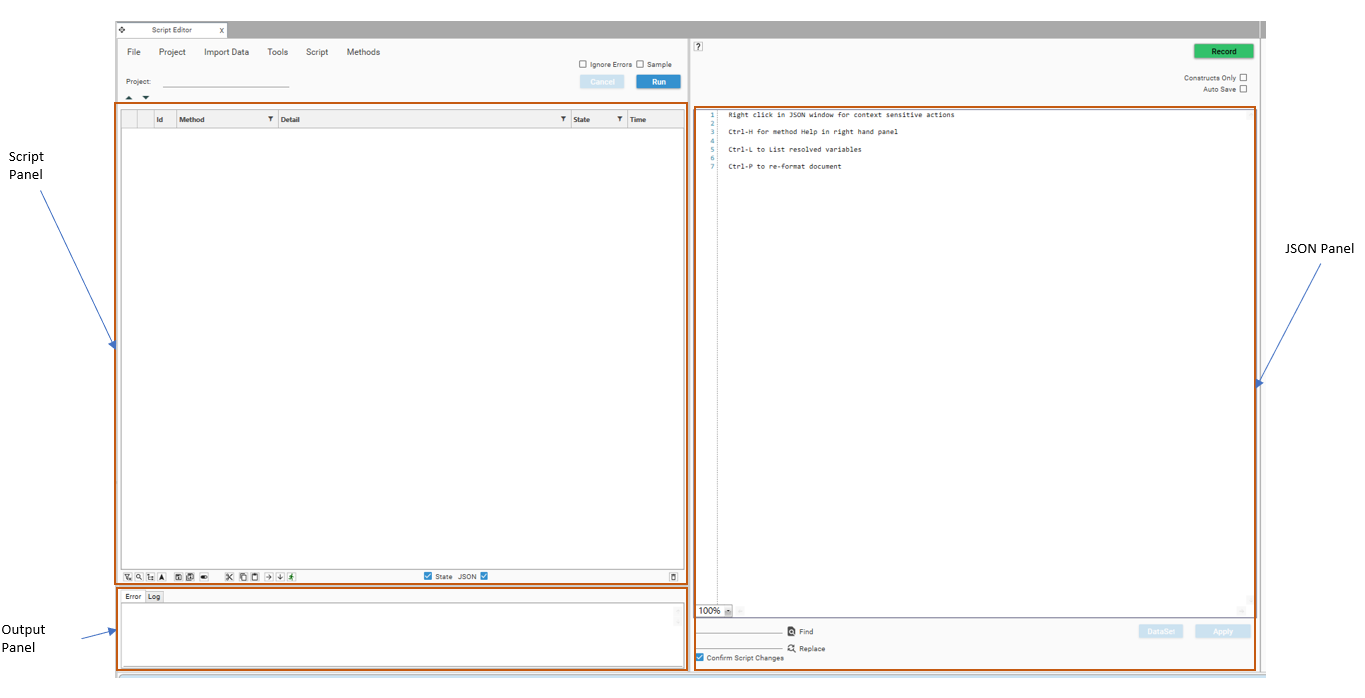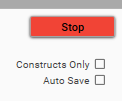Article in Progress...
Overview
Script Editor is an integrated scripting tool that uses the DataJet scripting language (based on JSON) to customise and automate database operations.
It integrates fully with the DataJet Desktop environment, and has dual methods of action:
- Capturing and storing Database modifications - such as engineering, reporting and modelling - in script, ready for re-use
- Using customised or recorded scripts to apply real-time or scheduled Database modifications

Script Editor consists of the following elements:
- Script Panel
- JSON Panel
- Output Panel
- Toolbar
- Control Panel

Control Options
Project
Ignore DSTAMP
Ignore Errors
Sample
If selected, ScriptEditor will load a single buffer of records, so the number of rows loaded will depend on the number of fields and width of data. The following methods are directly affected by sampling:
- CreateTableFromFile
- CreateTableFromWorkbook
If CreateTableFromFile is loading from multiple files in a folder, by default 10 files will be loaded
Cancel
Run
Auto Save
Record
Pressing record will put Script Editor into record mode. 
Actions taken in the Desktop application will now be recorded and added to the current script as they are executed.
(Note: This is in addition to the Script History, which is always being recorded behind the scenes and is accessed via Script Editor | File | Import definitions)
This is useful for appending interactions with the Desktop user Interface to the end of the existing script.
Press Stop to turn the recorder off - the Record button will turn green, showing script editor is ready to begin recording again:
Constructs Only
Default = True
If true, only construct actions will be added to the current script. Internal Desktop methods that are used to control the interactive selection and display of data will not be included.
Construct actions are actions that create permanent objects, such as new fields or tables or reports.
Examples of constructs are:
- lmath
- ExportIntoTable
- ...
Examples of non-constructs are:
- GenProfile
- CountDataSet
- ...